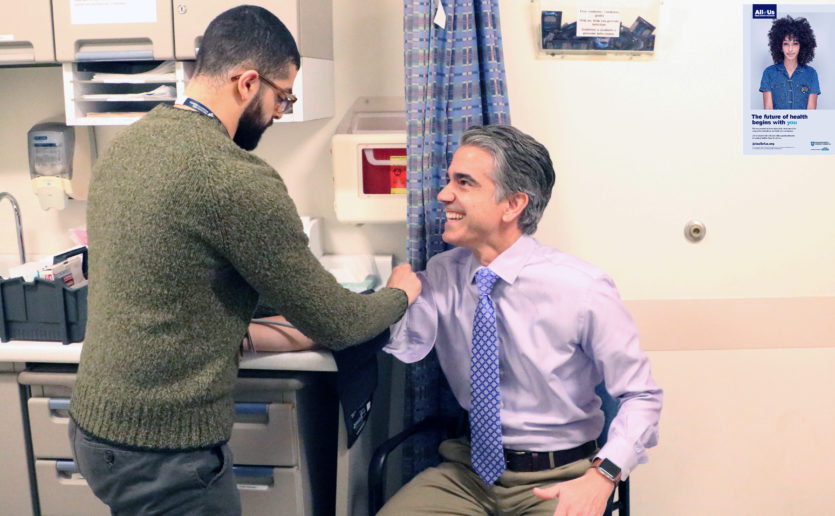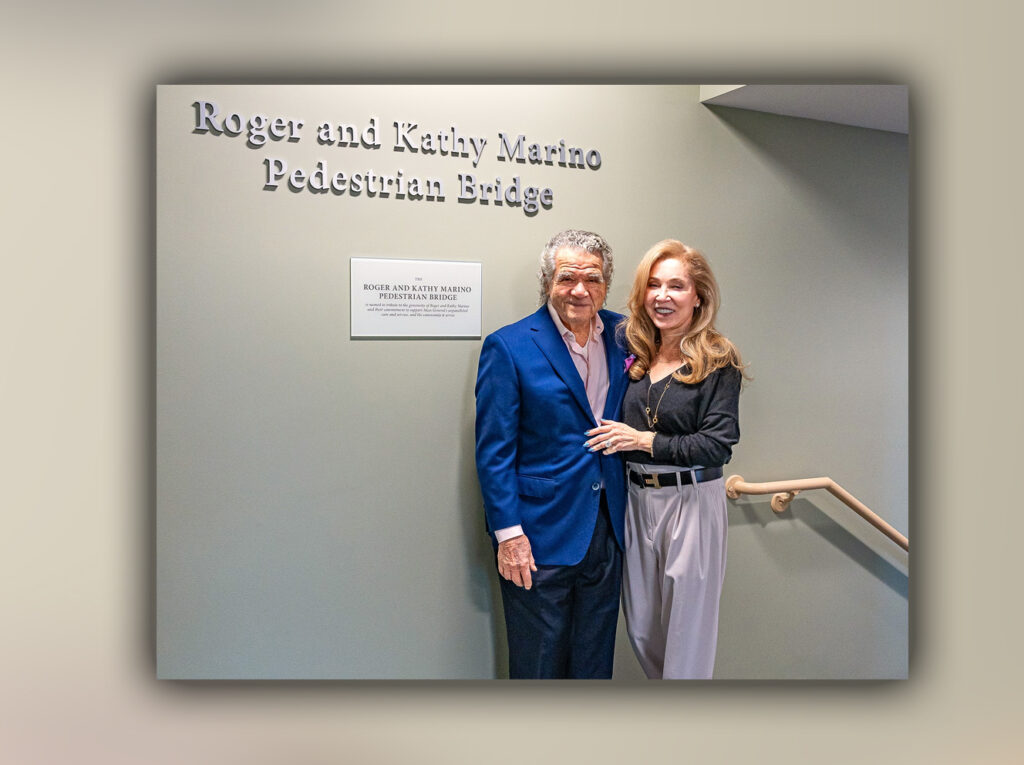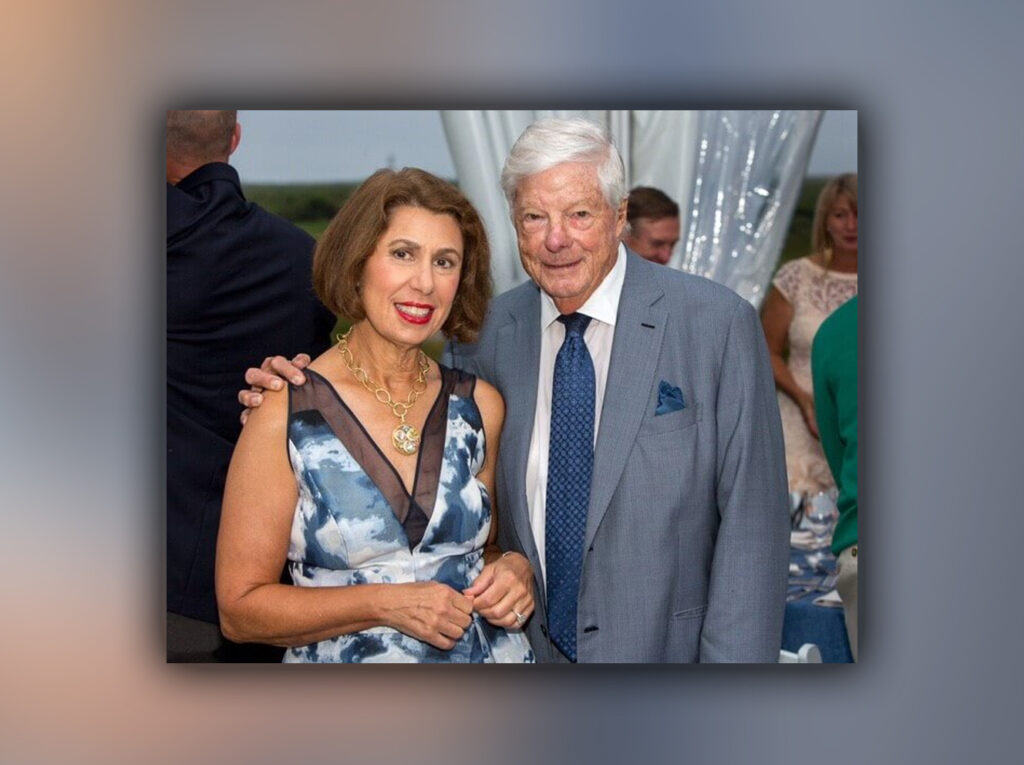Why do some individuals and populations experience poorer health outcomes than others?
Research shows that diseases like heart disease and cancer disproportionately affect racial and ethnic minority populations.
When it comes to health disparities in the United States, many would say the problem is a vicious cycle. Research shows that diseases like heart disease and cancer disproportionately affect racial and ethnic minority populations. Yet biomedical research studies and clinical trials have historically fallen short in recruiting individuals from these communities, preventing scientists from gaining insights into how to better tailor treatments for them.
The National Institutes of Health (NIH) is hoping to break this cycle with its new national effort, the All of Us Research Program. All of Us aims to build one of the world’s largest and most diverse data sets that reflects the nation’s diverse population by enrolling one million or more participants living in the United States and collecting their health data over a 10-year span, with 50% of participants coming from minority populations.
Welcoming the Underrepresented
“One of the principal values of this research program is to make sure that communities and individuals who have typically been underrepresented in biomedical research in the past are really welcomed to this program,” says Jordan Smoller, MD, ScD, associate chief for Research in the Massachusetts General Hospital Department of Psychiatry, director of the Psychiatric and Neurodevelopmental Genetics Unit, and Tepper Family MGH Research Scholar.

Dr. Smoller is one of five principal investigators for All of Us New England, the All of Us Research Program’s New England partner based at Partners Healthcare and Boston Medical Center, and one of several All of Us Research Program partners scattered throughout the country.
The overarching mission of this ambitious program is to gain knowledge about the individual differences in biology, environment, and lifestyle that influence health outcomes, and advance personalized prevention and treatment strategies.
The Boston-based team has developed a comprehensive and thoughtful strategy that they hope will engage Bostonians from all walks of life and encourage them to play an active role in shaping the future of precision medicine.
“I mention All of Us with my patients during their appointments, and we discuss the importance of their participation.”
Engagement Within Healthcare Settings
The All of Us New England team’s engagement strategy involves both internal recruitment efforts to reach the diverse community of employees and patients at Mass General and other Partners Healthcare institutions as well as outreach to communities in the Greater Boston area.
“We want to make this a priority for the Mass General workforce,” explains Dean Xerras, MD, medical director of the MGH Chelsea Healthcare Center, and co-investigator for the community engagement work within All of Us New England. “We’ve been meeting with physician and nurse leaders to say that we not only want you to recruit your patients, but we also want you to recruit your staff members.”
Dr. Xerras himself is serving as a champion for engaging patients that he sees as a primary care physician at the MGH Chelsea Healthcare Center, one of the recruitment sites.
“I mention All of Us with my patients during their appointments, and we discuss the importance of their participation.”

Dr. Xerras says the positive response he’s received from patients has been a humbling reminder of the impact that primary care physicians can have.
Connecting with Community Organizations
Beyond the walls of the MGH Chelsea Healthcare Center, plans are in motion to engage the Greater Boston community.
“We’ve been identifying community organizations that we can build relationships with, where we can understand what their needs are and they can understand why it’s important for their constituency to consider enrolling,” says Susan Edgman-Levitan, PA.
Ms. Edgman-Levitan is executive director of the John D. Stoeckle Center for Primary Care Innovation at Mass General, and co-lead of the community engagement work in collaboration with Dr. Xerras, and Jonathan Jackson, PhD, at Mass General, Cheryl Clark, MD, ScD, at Brigham and Women’s, and Tracy Battaglia, MD, MPH, at Boston Medical Center.
The team is working with groups such as Healthy Chelsea and the MGH CARE Center, as well as local libraries, senior centers and housing authorities. They’re also teaming up with Chelsea Public Schools to recruit research assistants, a strategy with a two-fold benefit.

“This is an opportunity to provide jobs while also finding research assistants who are comfortable speaking with and recruiting members from the community,” says Dr. Xerras.
These connections also have the potential to evolve into long-term, mutually beneficial relationships.
“Our hope is to increase the communities’ trust in us, and demonstrate that we have their best interests at heart,” says Ms. Edgman-Levitan. “As we build these relationships, we’re going to gain valuable insight about our primary care efforts that will benefit us as an organization above and beyond the research.”
Gift to the Next Generation
Ms. Edgman-Levitan and Drs. Xerras and Smoller are all excited about the potential impacts the All of Us Research Program could have for individuals, communities and the biomedical research field.
“For those who participate, it’s potentially a gift to the next generation because only research conducted at this scale and scope can be truly transformative,” says Dr. Smoller. “If we can move medicine from being something that works for many to something that can be effective for most, that will be terrific.”
The Research Institute: Saving Lives Through Science
 The Massachusetts General Hospital Research Institute is the largest hospital-based research program in the United States, with a community of more than 8,500 people working across more than 30 institutes, centers and departments.
The Massachusetts General Hospital Research Institute is the largest hospital-based research program in the United States, with a community of more than 8,500 people working across more than 30 institutes, centers and departments.
Our researchers work side-by-side with physicians to pioneer the latest scientific advancements for curing disease and healing patients in Boston, across the United States and around the world.
To learn more about the Research Institute, please visit our website.






